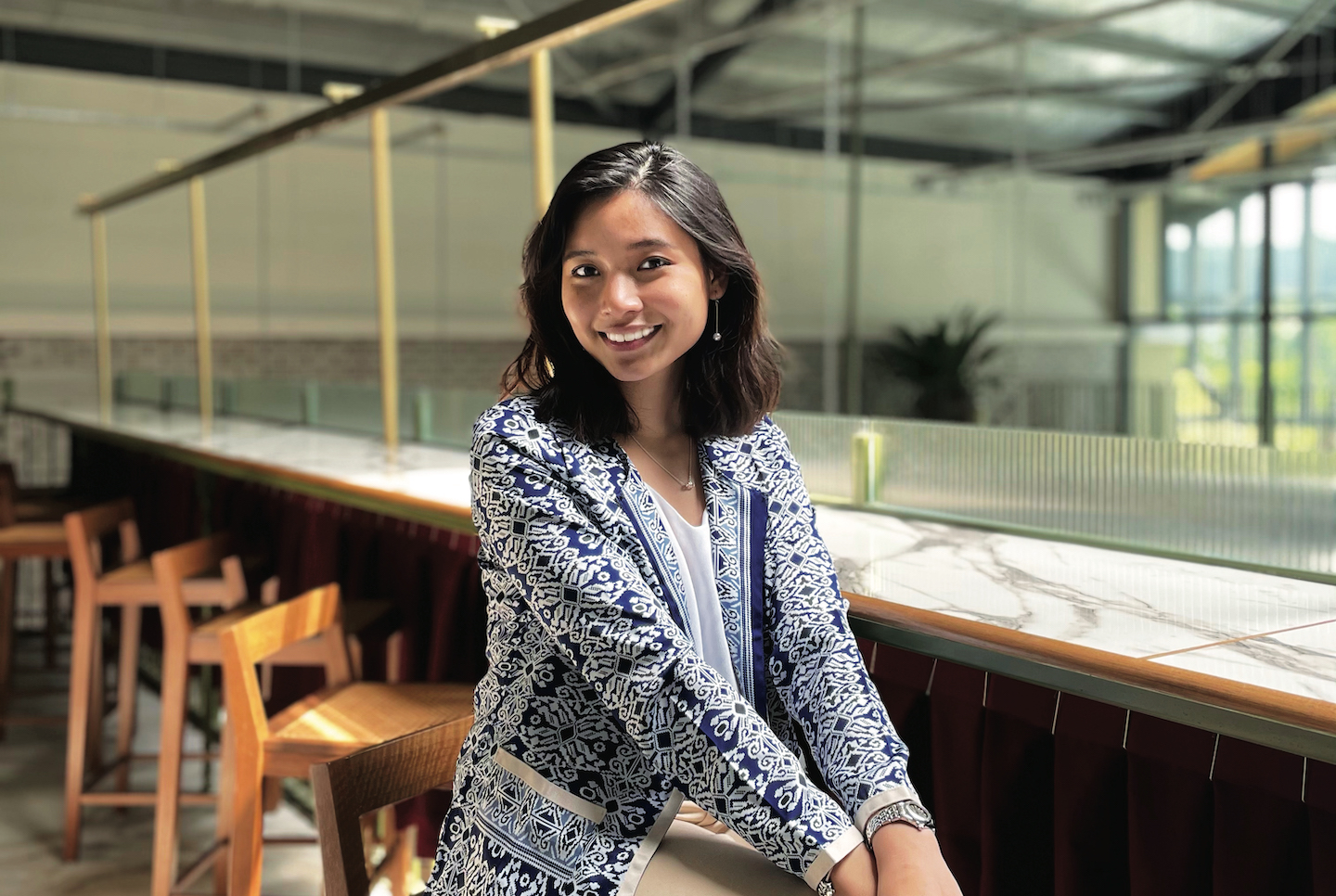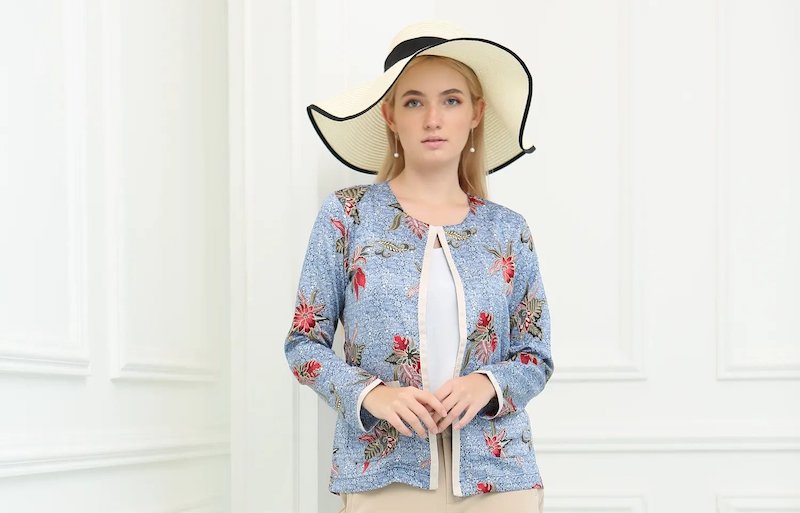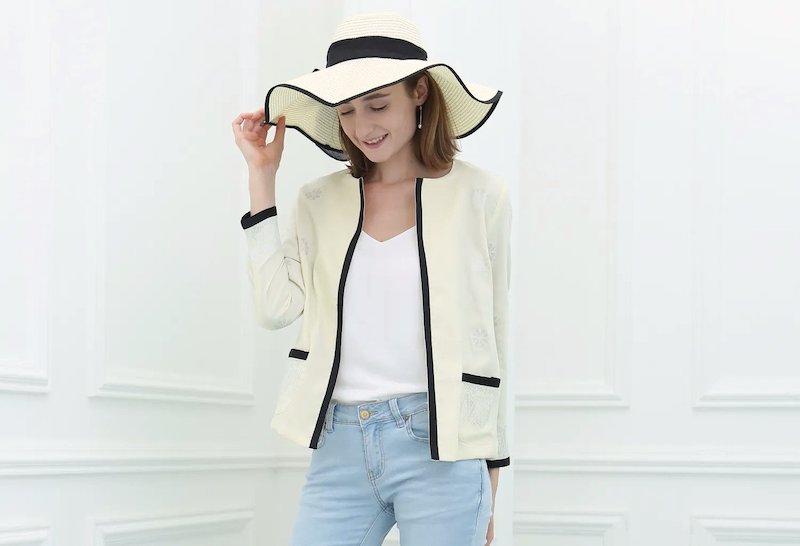
Inspired by her love for cacti, founder Majdah Fareed named her brand Cactorian (All photos: Cactorian)
Growing up, Kuching lass Majdah Fareed lived in numerous culturally diverse cities such as Havana and Bucharest. Although she didn’t spend many of her early days in Malaysia, she has a strong connection to her hometown and her family. She says her late grandfather Tun Ahmad Zaidi Adruce, governor of Sarawak from 1985 to 2000, who instilled in her a love for her city and an appreciation for its traditions. So much so that at events abroad, she would often reach for a baju kurung to proudly represent her culture.
In 2014, Majdah wanted to try something different. “I love songket and baju kurung, but I was thinking about how I could incorporate something that was part of my culture but wasn’t the usual baju. And being a rebellious teenager, I wanted to wear pants, loose jeans and all that. So I thought why not a blazer, because I love blazers,” she says.
While back in Malaysia for her holidays, Majdah and her aunt went to Nilai, Negeri Sembilan, and bought an elegant piece of songket fabric that was intended to be worn as a sampin and had it made into a stylish blazer. “It was perfect, I loved it so much. It was exactly the thing I needed. I wore it to a lot of events and people started saying to me, ‘Wow this is such a beautiful piece’,” she recalls.
With such encouraging feedback, Majdah told people about her songket blazer in the hope that someone would offer to turn it into a business but alas, no one took the bait. “Years went by and nobody did. I wanted to buy in from somewhere. I did not want to have it custom-made all the time because it is expensive … Only later I decided to sell it myself,” she says.
ezgif.com-gif-maker_1.jpg

After returning to Malaysia to complete her studies, Majdah now has a steady job as an auditor. Still, the entrepreneurial spirit is definitely within her. For batik Fridays at work, she approached a tailor with three batik and songket fabrics for new blazers. “When I saw the finished pieces, at first I thought they looked amazing, so I was like okay, maybe I can actually sell this,” she says. She was further encouraged by the tailor, who praised her unique idea.
This epiphany happened in January 2020, and Majdah went on to source fabrics and find the perfect team of seamstresses. She was geared up to start production when Covid-19 sent our country and the world into lockdown. This halted her plans and pushed the launch of her brand to September. As disheartening as it was, it reduced her workload as an auditor and gave her a chance to focus on her budding brand. Repurposing an old blog (inspired by her love for cacti), Majdah named her brand Cactorian.
As a practical and versatile item of clothing, blazers can be dressed up or down, making them suitable for any occasion. The added appeal of Cactorian’s blazers is that they are made with classy or statement batik and songket fabrics. This, coupled with their approachable price point — from RM129 to RM150 — makes them quite popular.
As Majdah has no background or experience in fashion, she relied on her aunt to help her create the perfect cut. Although Cactorian has released four collections to date — Fleur, Aloe, Roseum and Moon — Majdah has not deviated from her original blazer/cardigan cut. While she may do so in the future, she is currently exploring different fabrics that express traditions and unique patterns from her culture. For instance, the Moon collection features silk with Iban designs while the Fleur range uses Borneon batik.
The collections are also quite exclusive as there are only 25 to 30 pieces per design. While Cactorian began with a few seamstresses, Majdah managed to find a local factory that could deliver quality standards in the small numbers she needed.
blazer.jpg

Running a business for the first time also meant that she faced a few hurdles. Marketing was certainly tricky. “It caught me by surprise, just how expensive it could be to market my brand. Influencer marketing was another hassle. We have a small following and a small budget. Famous influencers are expensive, and while I respect that their work is not easy, I couldn’t afford them even though I know customers want to see everyday people wearing the items, and not just models,” she says. She hopes to delve into influencer marketing when her brand is more established — for now, she is focusing her efforts on Instagram.
Cactorian has begun a collaboration with Jari Indai, a brand that repurposes industrial scraps into bags and accessories. The Jari Indai bags are made by Orang Asal from Sarawak, a cause close to Majdah’s heart. “When you start a fashion brand, you should expect excess fabric. A lot of waste. When I saw my excess, I was shocked. I had boxes of excess fabric. I felt guilty, so I thought about what I could do to reduce waste. I thought maybe I could create something new with them,” she says. For the collaboration, Cactorian uses its fabric scraps to create decorative twillies for the Jari Indai bags, repurposing waste in a unique and fun way.
Majdah’s more immediate goals are to ship her blazers to more countries and navigate the international market, but she also has big plans going forward. Cactorian in many ways is an extension of her culture, but in the future, she hopes her fashion brand will include her experiences as well. “I travel a lot; I’ve been to more than 24 countries. I like to see other people’s fabric culture and maybe I can share what I see. Maybe one day, I’ll be making blazers with Romanian fabrics, for example.”
This article first appeared on Mar 29, 2021 in The Edge Malaysia.


